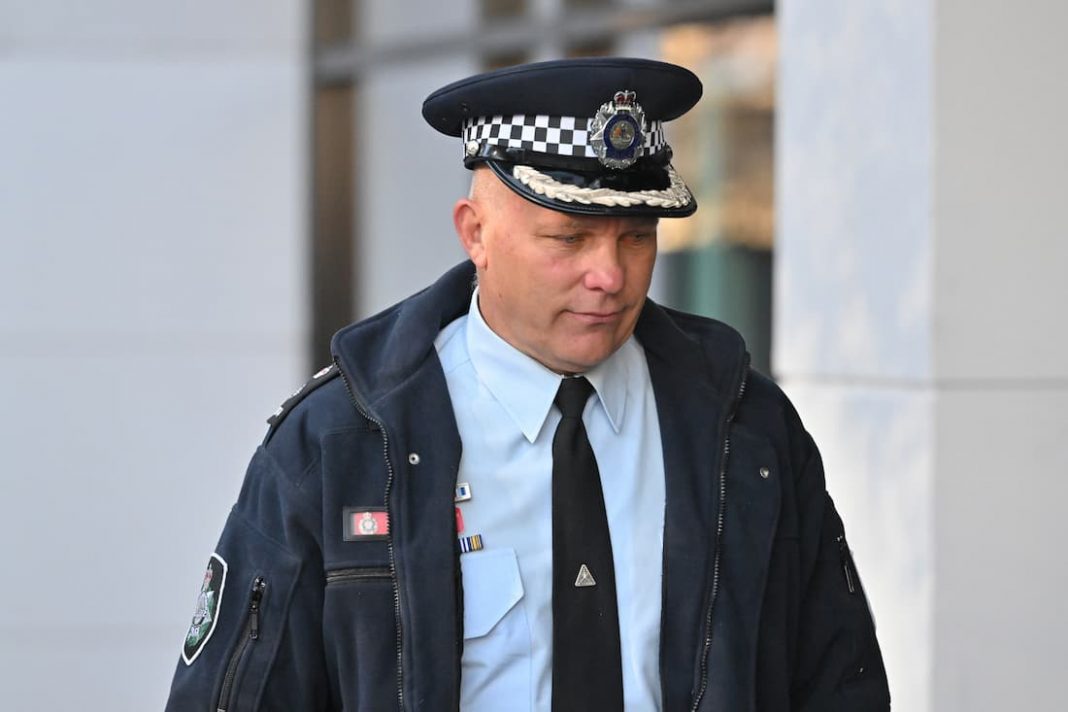Senior police have revealed a sexual assault and child abuse team that investigated Brittany Higgins’ rape allegation is used as a “training ground” for young detectives and there is some confusion among officers about when to charge a suspect.
The latest evidence heard by an inquiry examining how the ACT justice system handled Ms Higgins’ allegation uncovered problems within the force and a breakdown in its relationship with prosecutors.
For most of this week, Australian Federal Police Detective Superintendent Scott Moller was grilled about his team’s decisions during the high-profile case.
Supt Moller was the lead officer who investigated Ms Higgins’ allegation she was raped by her former colleague Bruce Lehrmann inside a ministerial office in Parliament House after a night out in 2019.
Mr Lehrmann denies the allegation and the charges against him were eventually dropped by the ACT prosecutor, amid concerns for Ms Higgins’ wellbeing after a trial was halted in the wake of juror misconduct.
The senior detective told the inquiry it was difficult to describe the pressure investigators felt from the media, the public and within the AFP, to put the accused man before the court.
While he wanted to do everything “perfectly”, he also admitted investigators made mistakes.
This included providing a brief of evidence containing Ms Higgins’ counselling notes to both the defence and prosecutors.
“That’s the bottom line, we shouldn’t have handed them over and it’s a mistake that we made,” he said.
AFP Commander Michael Chew acknowledged external pressure on investigators led to processes being missed, which led to mistakes.
The inquiry also heard further details about the breakdown in the relationship between police and prosecutors.
Supt Moller accused Director of Public Prosecutions Shane Drumgold of being “dismissive” of police concerns that there was insufficient evidence to charge Mr Lehrmann.
But it was later revealed sexual assault and child abuse team investigators were confused about the legal threshold required to charge a suspect.
A document tendered to the inquiry, based on statements made by 16 police officers, showed different understandings about what threshold they needed to meet.
In the ACT, the legal test for police to charge a suspect is if they have a reasonable suspicion an offence has been committed.
But some investigators, including those at a senior level, said a police officer must have a reasonable belief the evidence supported the prospect of a conviction.
Supt Moller told the inquiry officers in the sexual assault and child abuse team, which investigates these sorts of cases, are “young and inexperienced”.
Staffing pressures meant junior officers were running investigations with minimal direction from a senior officer, and experience in the team had been “depleted”.
Supt Moller said the division was being used as a “training ground for budding detectives” and acknowledged there was “absolutely” room for improvement when it came to police training on sexual assault responses.
But he rejected the suggestion that he showed bias towards Mr Lehrmann or that officers lost their objectivity.
Although he initially believed there was not enough evidence to charge, he changed his mind after receiving advice from Mr Drumgold that charges could be laid.
Mr Drumgold previously told the inquiry he believed police had a “passion” for the prosecution to fail.
Yet Supt Moller insisted police were “absolutely professional” once the prosecutor had advised Mr Lehrmann should be charged.
In a powerful disclosure during the closing minutes of his time in the witness box, Supt Moller revealed he was a survivor of a sexual assault that occurred 45 years ago.
His personal experience informed his work as a police officer and he was “offended” by suggestions his investigation of Ms Higgins’ case had been affected by “rape myths”.
“As dedicated as I am and other police are in ACT Policing, it is disappointing to hear that there is an inference that we’re not working as hard as we can to solve those matters, to move forward with those matters and to have them prosecuted.”
1800 RESPECT (1800 737 732)
National Sexual Abuse and Redress Support Service 1800 211 028
By Maeve Bannister in Canberra



